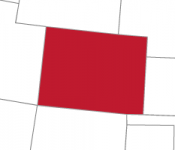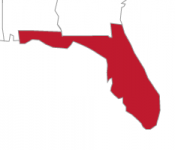When high school beckons, your teen’s thoughts might invariably drift towards the freedom of driving. As they near this exciting milestone, parents are faced with the responsibility of ensuring they’re well-prepared and informed about the state’s driving rules. Embracing this pivotal moment in their lives can be nerve-wracking, but with the right guidance, you can set your teen on a path to safe driving. This article presents an outline of Washington State’s driving rules tailored for the eager 16-year-olds.
Starting with the Learner’s Permit
In Washington, a learner’s permit, also known as an instruction permit, is where the driving journey begins. At 15 years old, if your teen is part of a recognized driving school program, like 911 Driving School, they can apply for this permit. However, those not enrolled in such programs must wait until they are 15 and a half. When applying, they’ll need to present identification proof, a residency confirmation, and a signed Parental Authorization Affidavit. To secure the permit, applicants are tested on vision and must demonstrate a sound understanding of local traffic signs and laws. Notably, students of driving courses might have the written test requirement waived off.
Guided Driving Phase
Once obtained, the instruction permit remains valid for a year. During this phase, teens must be accompanied by either their driving instructor or an experienced licensed adult who’s been driving for a minimum of five years. It’s crucial to note that minor drivers are strictly barred from using mobile phones while driving. Given that distractions rank high among reasons for teen-related accidents, Washington doesn’t compromise on this rule.
Enrolling your teen in structured courses at institutions like 911 Driving School can provide them with a strong foundation. Starting their hands-on training in spacious parking areas can ensure they master basic maneuvers before transitioning to more populated roads. The golden advice here? Practice as much as they can.
Transitioning to the Intermediate License
The driving age requirements differ from state to state. In Washington, post the permit phase, teens move on to the intermediate license. To be eligible, they must:
- Be at least 16 years old.
- Have held the instruction permit for no less than six months.
- Furnish proof of driving education.
- Submit a log of 50 hours of supervised driving, which should include at least 10 nighttime hours.
- Prior to application, they should be free of tickets, at-fault accidents, DUIs, or drug-related convictions for a six-month span.
Understanding Privileges & Limitations
Those with an intermediate license enjoy more freedom but are still bound by certain restrictions:
- Unsupervised driving is allowed except between 1 a.m. and 5 a.m.
- The first six months prohibit carrying non-family passengers under 20. Post that, up to three such passengers are allowed.
- Use of electronic devices while driving remains off-limits.
- After successfully maintaining their intermediate license without violations for a year, these restrictions are lifted.
Suspension & Consequences
Parents will be alerted if their teen gets a ticket or flouts any restrictions. A repeat violation within this phase will lead to a six-month license suspension.
The Final Step: Unrestricted License
On turning 18, those with an intermediate license seamlessly transition to an unrestricted one without needing a new card. The Department of Licensing then waives all prior limitations. First-time license applicants aged 18 can directly obtain an unrestricted license.
Insurance Imperatives for Teens
Law mandates that teens have liability insurance once they start driving unsupervised. Including them in the parents’ existing policy is generally more economical than separate policies. As insurance costs rise with teens on board due to perceived risks, be sure to check with your insurer about potential discounts, especially for academic achievements.
Handling Accidents
If your teen finds themselves in an accident, they should immediately contact the police. Having an official collision report is crucial in determining fault and ensuring fairness, especially during the intermediate licensing phase. Any accident, irrespective of apparent severity, warrants a medical checkup.
Navigating Washington’s Roads with Confidence
Preparing your teen for their driving journey is undoubtedly challenging. However, being well-versed with Washington’s driving laws can ease this transition. Enrolling your teen in specialized driving courses will equip them with the right skills and knowledge.
At 911 Driving School, we’re committed to fostering responsible and skilled drivers. As a parent, you can be assured of quality education that prioritizes safety. Ready to embark on this journey? Reach out to us today.






